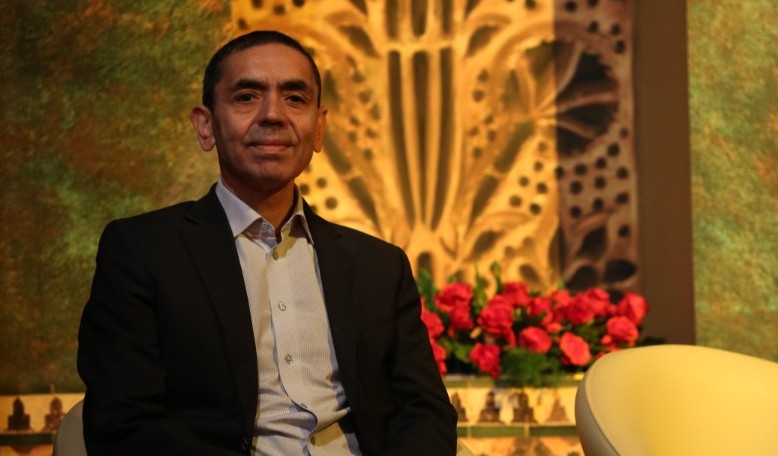Our mission is to bring the knowledge of whole planet to save a patient


In his momentous speech upon accepting the 2019 Mustafa(Pbuh) Prize, Ugur Sahin made several key points which tell us much about the role of science in humans’ life, and the revolutionary field of immunotherapy which is the backbone of his COVID-19 vaccine.
MSTF Media reports:
It was exactly a year ago that Ugur Sahin won the Mustafa Prize for developing mRNA-based cancer vaccines. In his award acceptance speech in Tehran, Iran, Sahin described the mission of scientists as “bringing the knowledge and technology of the whole planet for the sake of saving a single individual patient”—an idea which he said is in agreement with the belief of Muslims and other religions in that ‘saving one life is like saving the whole humanity.’
Now BioNTech, co-founded by Sahin, has developed a COVID-19 vaccine which is more than 90 percent effective in preventing a disease that has killed more than 1.2 million people worldwide.
What prompted Sahin to start working on this vaccine in January 2020 was reading about the first manifestations of Coronavirus in Wuhan, China. While many scientists dismissed this event as non-threatening, Sahin saw through the matter, predicting that this virus is going to spread across the globe. Warning the board of BioNTech and forming a team to develop a potential vaccine to induce immunity and prevent COVID-19 infection, Sahin prepared for this uncalled-for global health threat.
In his speech, Sahin stated that “immunotherapy is a newly emerging field and many scientists believe that it will become the future of cancer medicine.” Indeed, this multidisciplinary field of research acknowledged by Mustafa Prize, has proven to be not only the future of cancer medicine but having turned the tide in this pandemic and the viruses to come.
In Sahin’s words, “The basic idea [of immunotherapy] is that every patient has a different cancer with a unique genetic profile and, therefore, every cancer patient needs to get a personalized treatment that is tailored to the genetic profile of the cancer.”
The ingenious solution of Sahin and his team was the personalized vaccines that train the body’s T-cells to attack tumors. They used synthetic messenger RNA or mRNA and coded it to include all the necessary information to tell T-cells what proteins to make. This engineered mRNA enables them to identify uniquely mutated proteins on the surface of an individual’s tumor cells and mobilizes immunity against a spectrum of cancer mutations. In the same way, the recently-developed COVID-19 vaccine candidates use mRNA to trigger the immune system to produce protective antibodies without using actual bits of the virus.